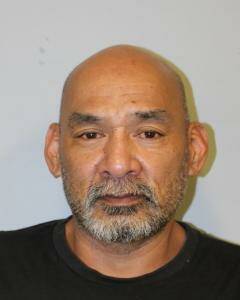A 56-year-old Ka‘u man once charged as being an accomplice to the 2009 shooting death of a 21-year-old rodeo champion was sentenced to five years in prison for his role in the murder.
Hilo Circuit Judge Henry Nakamoto imposed the sentence Thursday on Peter Fuerte for first-degree hindering prosecution, a Class C felony.
In the murder case, Fuerte testified that Patricia Wong — who was convicted by a jury Nov. 30 of second-degree murder for fatally shooting Kaycee Smith — offered him money to kill Smith.
Fuerte, a childhood friend of Wong, pleaded guilty to obtaining a gun for Wong, but not the firearm police said was the murder weapon.
In return for his plea and testimony, prosecutors dropped charges of accomplice to second-degree murder, accomplice to attempted second-degree murder and being a felon in possession of a firearm.
Fuerte already is incarcerated on unrelated charges. According to the Department of Corrections and Rehabilitation website, his scheduled release date is Sept. 25, 2030.
Wong, 61, faces a mandatory sentence of life with the possibility of parole when she is sentenced Feb. 27 by Nakamoto. In addition to the murder charge, Wong also was convicted of two counts of solicitation of second-degree murder, attempted second-degree murder and criminal conspiracy to commit second-degree murder.
Wong on June 30, 2009, reported to police that she found Smith’s, saying she thought the death was a suicide.
Police said Smith died of a single gunshot wound to the head in her rented Orchidland home.
During the trial, Deputy Prosecutors Annaliese Wolf and Matthew Woodward laid out a case that Wong, who called Smith a “hanai daughter,” killed her for her money.
Smith had inherited at least $250,000 in life insurance money after the 2007 death of her father, Noel “Bear” Smith. Smith and Wong had opened a joint credit union account, with Smith initially contributing $91,000 and Wong $3,500, according to prosecutors.
That account — which had about $35,000 when Smith was killed — had a right of survivorship clause, which means if one of the joint owners dies, the other is the beneficiary of all the money.






